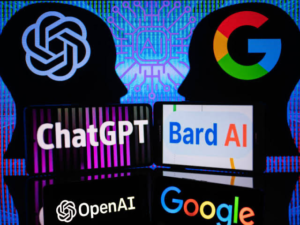
Introduction
Artificial Intelligence (AI) is an ever-evolving field that has the potential to revolutionize businesses across various industries. From virtual assistants to self-driving cars, AI is transforming the way we live and work. In this blog post, we will explore the different types of AI and their applications in businesses.
1. Narrow AI
Narrow AI, also known as weak AI, refers to AI systems that are designed to perform specific tasks. These systems are trained to excel in a particular domain, such as image recognition or natural language processing. Examples of narrow AI include voice assistants like Siri or Alexa, which are programmed to answer specific questions and perform tasks based on voice commands.
One of the advantages of narrow AI is its ability to outperform humans in certain tasks. For instance, AI-powered chatbots can provide instant customer support, handling multiple queries simultaneously without any human intervention. This not only improves customer satisfaction but also reduces operational costs for businesses.
2. General AI
General AI, also known as strong AI or human-level AI, refers to AI systems that possess the ability to understand, learn, and apply knowledge across various domains. Unlike narrow AI, which is focused on specific tasks, general AI aims to mimic human intelligence and perform any intellectual task that a human can do.
While general AI is still largely a theoretical concept, researchers and developers are working towards achieving this level of AI. The potential applications of general AI are vast, ranging from autonomous robots capable of performing complex surgeries to machines that can creatively solve problems and even surpass human capabilities in certain areas.
3. Superintelligent AI
Superintelligent AI refers to AI systems that surpass human intelligence in all aspects. This level of AI is currently purely hypothetical and often portrayed in science fiction movies. Superintelligent AI would possess not only the ability to perform intellectual tasks but also to improve its own capabilities, leading to an exponential growth in intelligence.
While superintelligent AI holds immense potential, there are also concerns regarding its control and ethical implications. As the development of AI progresses, it is crucial for businesses and society as a whole to establish ethical guidelines and regulations to ensure the responsible use of such powerful technologies.
Conclusion
The field of AI encompasses various types, each with its own strengths and limitations. Narrow AI is already widely adopted in businesses, offering improved efficiency and customer experiences. General AI holds the promise of emulating human-level intelligence, while superintelligent AI remains a subject of speculation and caution. As AI continues to advance, businesses need to stay informed about the different types of AI and their potential applications to leverage this transformative technology.



